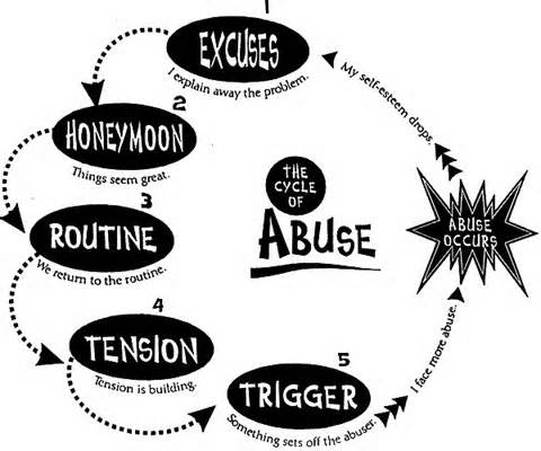
After working with clients who have survived abusive relationships, I see a paradoxical but interesting feature: people who have survived such relationships perceive negative attention as something meaningful and important. In a toxic relationship, the abuser gives mixed signals, creating a sense of intense passion and attention, even if that attention is destructive.
When such clients try to leave and create new relationships where there are no extreme displays of attention, they develop a feeling of emptiness or boredom. After all, healthy relationships are based on respect, care and mutual understanding, and do not always manifest themselves through dramatic scenarios and emotional rollercoasters.
Abusive displays of attention, although seemingly intense, actually represent a distorted view of love. They create dependence and control, emotional swings from alienation and coldness to passionate scenes. A person gets hooked on a hormonal needle. In a healthy relationship, true love is shown through respect, support and care, not through toxic drama and manipulation.
People who experienced neglect and attachment trauma in childhood did not receive the emotional support and security they needed from their parents or caregivers. This results in an unstable attachment pattern where they seek comfort, validation and support in relationships but have difficulty setting healthy boundaries and recognizing their needs.
This has a huge impact on their understanding of love and affection in adulthood. They may end up in abusive relationships by seeking the same form of attention they received as children. Sometimes they may even justify their partners’ negative behavior as a sign of care or attention, because that’s the only thing they’ve ever known. Due to the lack of healthy models in childhood, they may not recognize warning signs or succumb to the feeling that this behavior is normal. The world is becoming upside down, concepts are being replaced. When the only form of attention available in childhood was through criticism and negativity, children grow up accustomed to the fact that yelling, devaluation, or even physical assault is better than complete indifference.
The person may begin to doubt themselves, feel that they deserve such treatment, or that they are not capable of healthier relationships. Moreover, abusive relationships can be both emotionally toxic and physically draining. Often, a person in such a relationship may feel constant stress, anxiety and worry, which leads to emotional and physical exhaustion, and constant retraumatization.
If you recognize yourself, it is important to remember that it is not your fault, but your responsibility. What can you do about it to improve your quality of life and relationships in the present?
Working on yourself and seeking help in therapy can play a huge role in re-evaluating your beliefs so you can set new, healthy boundaries for yourself and attract positive, supportive relationships into your life. This is a difficult but important step towards breaking free from stereotypes and building a healthier future.
Breaking free from such relationships can be a difficult but important step toward rebuilding your self-esteem and regaining emotional stability. The process begins with recognizing that the relationship is harmful and seeking support—whether through friends, family, or professionals. Gradually, through working on yourself and your environment, you can begin to restore your self-esteem and believe in your own worth.
Leave a Reply